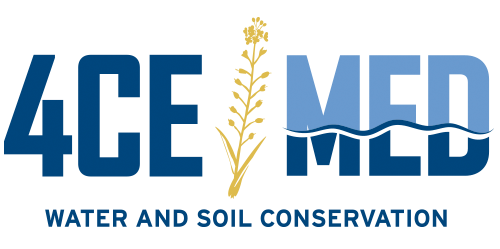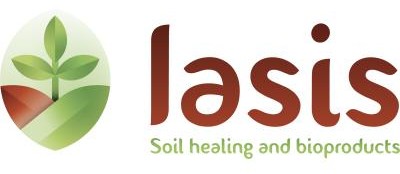
UNTWIST is addressing the fact that changing climate and extreme weather events are increasingly impacting crop yield and value. UNTWIST is dedicated to tackling this issue by harnessing the potential of camelina, a traditional European oilseed crop known for its climate resilience to provide a mechanistic understanding of successful adaptation strategies to combat drought and heat stress in crops. Moreover, it will develop predictive models and robust markers for crop performance for variable environments. UNTWIST´s long term aim is to improve crop resilience and yield stability in changing, challenging climates and contribute towards increasing the sustainability of European agriculture.

4CE-MED project aims at creating innovative, diverse, and resilient farming systems in the Mediterranean region that do not compete for land with the existing food chain. This will be achieved through a collaborative approach that involves smallholder input in identifying their needs, while planning, monitoring and evaluating the project actions. The 4CE-MED systems are modified traditional farming approaches incorporating camelina, a promising oilseed crop for Europe, as a cash cover crop which might increase farmers’ revenue while enhancing soil and water conservation.

The BIKE project (Biofuels production at low ILUC risk for European sustainable bioeconomy) is a Horizon 2020 initiative that supports the implementation of the European Commission’s Renewable Energy Directive II. It does so by delivering evidence, assessing, and promoting the market potential of low ILUC risk value chains for biomass, biofuels, and bioliquids in Europe. These biofuels are produced in ways that reduce the risk of indirect land use change, either through improved productivity or by cultivating crops on abandoned or heavily degraded land.
BIKE’s core activities include evaluating and demonstrating the reliability of several low ILUC risk biofuel production pathways, while also assessing their environmental, social, and economic sustainability. The project further aims to develop the first certification module for low ILUC risk biofuels and to support future policy development and decision-making.

IASIS (Curing contaminated and saline land with industrial crops) is a Horizon Europe project focused on restoring degraded land through phytomanagement. It uses high-yielding, non-food crops to produce biomass for valuable bio-based products via a cascading biorefinery approach.
The project operates through two main pillars:
Lighthouses: Demonstration sites across Europe where selected crops are tested on contaminated and saline land, offering training and showcasing phytomanagement solutions.
Bio-based Products: Development of high-value products from the crops, supported by a Decision Support System to identify the most sustainable and economically viable biomass-to-product pathways.
SUBSCRIBE TO A NEWSLETTER
Funded by the European Union. Views and opinions expressed are however those of the author(s) only and do not necessarily reflect those of the European Union or the European Research Executive Agency. Neither the European Union nor the granting authority can be held responsible for them.